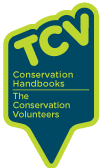Printed from: https://finalhbks.asgoodasready.com/waterways-wetlands/waterways-wetlands-and-the-law/
The vital importance of fresh water to all aspects of life is reflected in complex legislation which regulates different aspects of water management and usage.
Since this chapter was originally written there have been a number of changes and so the information within should be used for information and with some caution only. If any aspect of proposed works is uncertain then further advice should be taken. Local offices of agencies such as Natural England, Environment Agency, Canal and Rivers Trust, Scottish Environment Protection Agency or Natural Resources Wales should be consulted
Agencies which may need consulting are listed below, together with their areas of responsibility.
- The Environment Agency (England and Wales), the Scottish Environment Protection Agency or the Department of the Environment for Northern Ireland – see below.
- The local planning authority – planning permission.
- English Nature, Countryside Council for Wales or Scottish Natural Heritage, Department of the Environment for Northern Ireland – Sites of Special Scientific Interest (or Areas of Special Scientific Interest in Northern Ireland), species protection, European Union Conventions and Directives.
- Internal Drainage Boards (England and Wales) – maintenance of water flow through ditches designated as ‘main drains’ (see ditch maintenance below).
- Local water company – water supply and disposal.
- Voluntary conservation bodies such as the wildlife trusts, RSPB – advice and expertise on nature conservation.
- Health and Safety Executive – notification of some construction projects, which may include ponds, ditches and dams, that involve five or more people on site.
